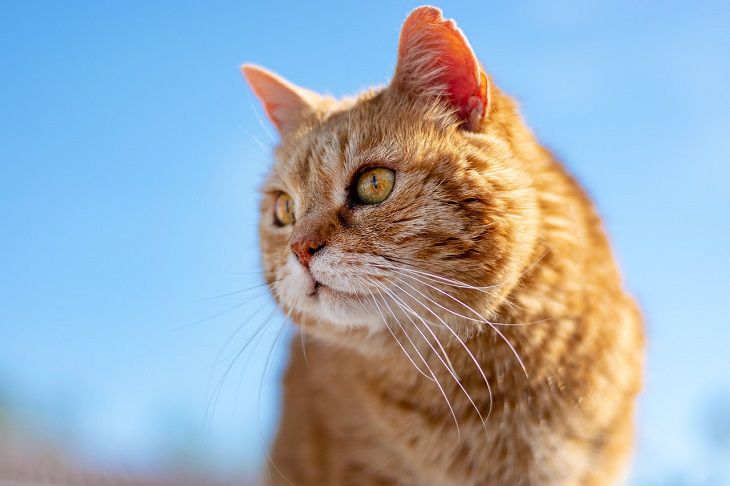Just like humans, cats can get older - it's an inevitable part of living a long, happy life.
While you can't always say whether a cat is young or old by just looking at it, there are a few signs that your cat isn't that young anymore.
Pay attention to these signs, so you can take the best care of your pet!

Slowed Movements
Noticeable changes in your cat's movement patterns, such as a more leisurely pace or reluctance to jump onto higher surfaces, can be a sign of aging.
Provide accessible areas for your cat to rest and navigate comfortably.
Altered Grooming Habits
Aging cats may struggle with grooming, leading to a less meticulous appearance.
Keep an eye out for changes in coat condition, and lend a helping hand with gentle brushing to maintain their hygiene.
Weight Fluctuations
Changes in weight, whether gain or loss, can be indicative of aging-related issues.
Regular monitoring and adjustments to diet can help manage weight changes and support your cat's overall health.
Dental Dilemmas
Dental issues become more prevalent as cats age.
Pay attention to changes in eating habits, bad breath, or pawing at the mouth, as these could signal dental problems.
Regular dental check-ups become increasingly important.
Shifts in Sleep Patterns
Senior cats tend to sleep more and may become more particular about their sleep environment.
Providing a comfortable, quiet, and warm space can contribute to their well-being.
Changes in Vocalization
Alterations in your cat's usual vocalizations may occur with age.
Increased vocalization, especially during the night, could be a sign of discomfort or cognitive changes.
Litter Box Issues
Aging cats might experience litter box challenges, such as difficulties accessing it or changes in bathroom habits.
Keep the litter box easily accessible and monitor for signs of discomfort during elimination.
Diminished Hearing and Vision
Cats may experience a decline in hearing and vision as they age.
Accommodate these changes by providing consistent surroundings and minimizing sudden changes to their environment.
Previously, we've talked about why cats might wake you up early.












